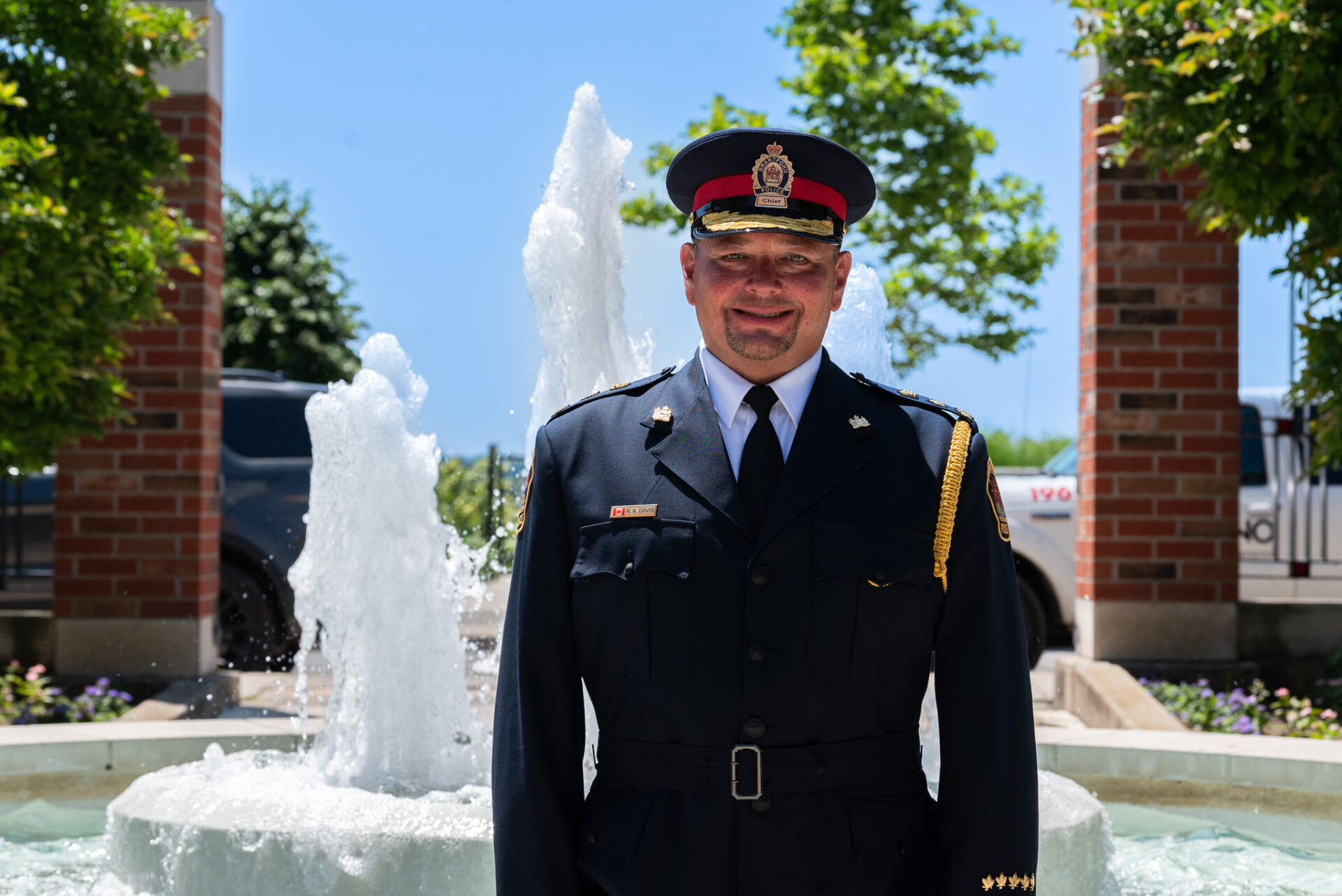As Rob Davis’ tenure with Brantford Police Service comes to an end, he will now focus on the sunrise of his future.
Davis worked his last day as Chief of Police on Friday, June 21, 2024.
“I knew that when it was time to leave, I wanted my last day to be National Indigenous Peoples Day,” said Davis. “A few years back, the Ontario Police College started doing a sunrise ceremony on June 21 so I’ll be getting up at 4:00 a.m. and arrive just shortly after 5:00 a.m. to be there for when the sun comes up and it will be the last sunrise ceremony I go to as Brantford Police Service representative, but also as an Indigenous Police Chief. Afterwards, I’ll come back and typically there’ll be some events in the City so I’ll shake some hands, say some goodbyes and get to enjoy the rest of National Indigenous Peoples Day.”
Davis was the first Indigenous-born person to lead a non-Indigenous police service in Ontario.
“I’m proud to be Indigenous and I care about this region and the area because I’m from Six Nations. Up until Chief Sydney Lecky took over in Timmins on May 15, I was the only Indigenous police officer leading a non-Indigenous police force in Ontario; there are some that identify as Métis, but as far as actual status and being raised on the reserve, I was the only one for a while and now we have Chief Lecky in Timmins, so I’m extremely proud of that,” said Davis. “I won’t sugar-coat it, the majority of people have been awesome during my time as Chief, but there are some people that say ‘he only got it because he’s Indigenous,’ and because of that, I’ve always felt like I had to work twice as hard knowing I was on a finite contract to get stuff done and to show that I didn’t get the job just because I’m Indigenous.”
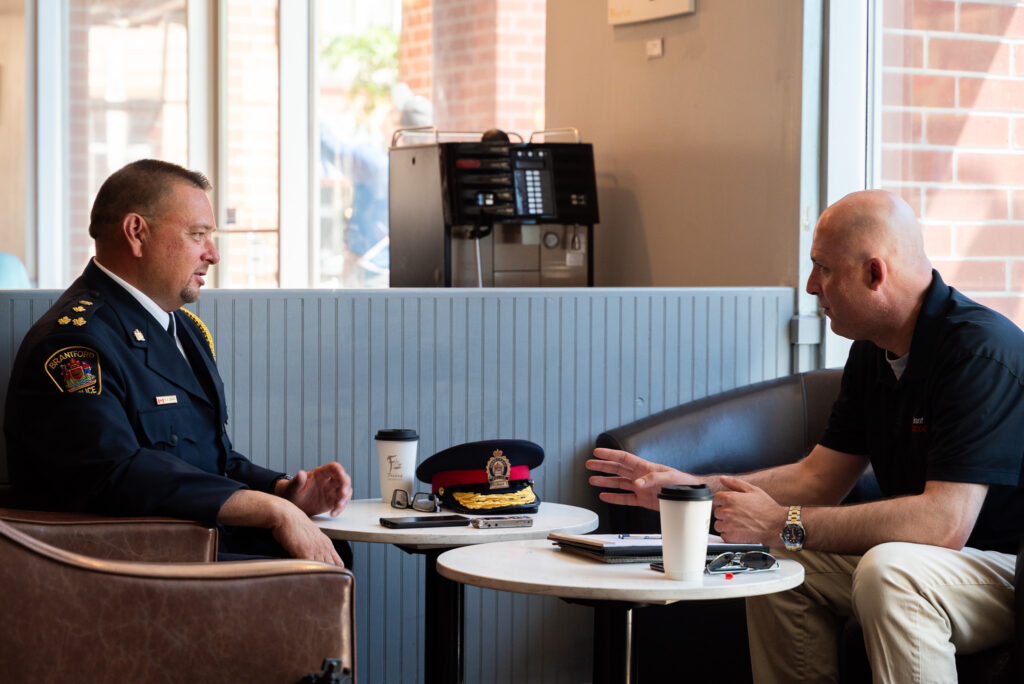
Davis, who started as chief on November 1, 2019, reflected on his last five years with the Brantford Police Service.
“On paper, I started in September so I was here but then I had to go back to Lethbridge, Alberta to tie up some loose ends and move. The change of command was on November 1 and that’s when I hit the ground running,” he said. “Those first four months in the Chief position, you’re still an outsider coming into a community so in November and December, you’re getting invited to everybody’s Christmas events meeting everyone. It was really a re-acquainting for me and so those four months flew by and then COVID-19 hit, and everything shut down on March 16.”
He said that when he took the position, the board made it clear that there was a need to modernize the force.
“One of the pieces they wanted to address was technology and I was actually shell shocked at how many paper systems we were still using. It sounds silly but when we used to use notepads, things like penmanship would get our submitted notes rejected and sent back to us,” said Davis. “During the pandemic, we gave every officer a device and we implemented a technology called Smart Squad and so now every report we do goes into a respective record management system called NicheRMS. It really allowed officers to turn their cruisers into their office and because the generation of officers we’ve hired in the last decade were raised with a device in their hand, they’re more proficient in typing and so with Smart Squad, they can do their notes and such and with one push of a button, it integrates into our management system.”
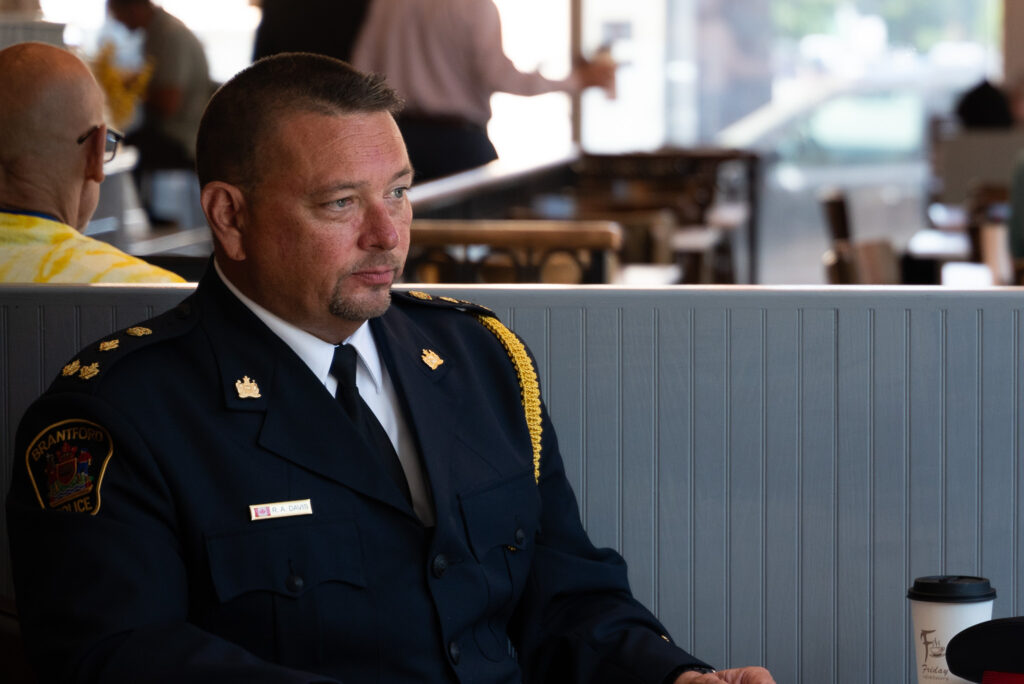
Davis said that another part of modernizing the force came down to diversity.
“The demographics of the city have changed, it’s not the same as it was 20 or even five years ago and the service desperately needed to become more diverse to reflect that. When you have a multi-generational newcomer family, the 30 somethings are at work, the kids are at school and if Grandma and Grandpa call 911, one of my biggest fears to this day, is not being able to communicate with them,” he said. “Yes, we can use mapping to determine where we need to go but when I arrived here, we had no capacity to communicate with other dialects other than two officers. Since September of 2019, I’ve hired 68 officers and 45 of those are from diverse backgrounds and so because of that, every platoon now has a wide range of diversity and with that comes those language skills and cultural competencies. We aren’t where I wanted us to be quite yet, but what we have implanted has made a huge difference.”
By intentionally hiring from diverse backgrounds and having them visible on the streets, Davis said it’s helped them not only build trust with racialized communities, but it’s increased their overall recruitment numbers as well.
“Having grown up on Six Nations, I know there’s been a historical mistrust of the police and if we want to recruit people from racialized backgrounds that may not have a positive history with police, we have to build that trust through baby steps,” he said. “When you look at the diversity in Brantford, a lot of our newcomers may come from countries where they don’t trust the police, but the kids may be interested in policing. What I underestimated in hiring our racialized and diverse officers, is how that story reverberated in their respective communities to where the youth are saying ‘I want to do a co-op with you’ or ‘I want to be a police officer in Brantford.’”
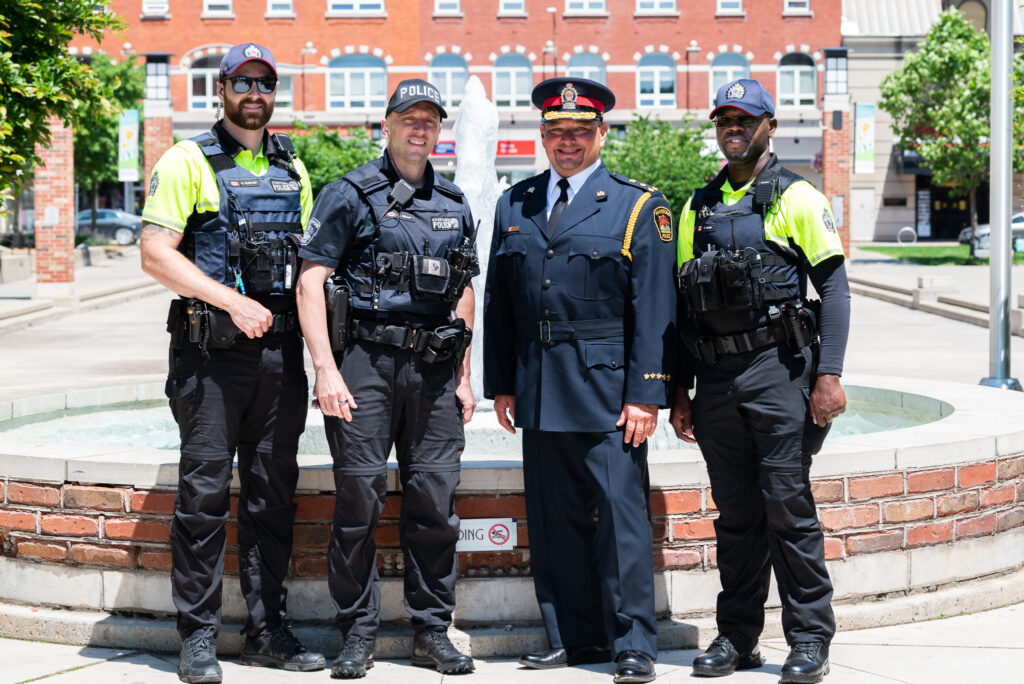
Davis said that creating roles like the Brantford Police Service’s special constables, is part of a long-term stratified approach to public safety and allows those who are thinking of joining the police service, to test out the waters and build relationships with the downtown community.
“What the special (constables) allow is an avenue for someone to test the waters and it creates career pathways. We have the entry level special constables in the platoons, then they can move into the courthouse and then finally, up into specials that are outward facing and on the downtown streets,” said Davis. “Each step gives them a little bit more responsibility, but it also allows us the time to get to know the individual, their family, and their community and it’s been great because we’ve now had three or four that have come out of this special constable group that have gone on to become regular officers. We’ve also seen that the special constables are out there creating relationships with the people downtown and because they’re on foot, they have the time to connect those people with the social workers or mental health workers they may need.”
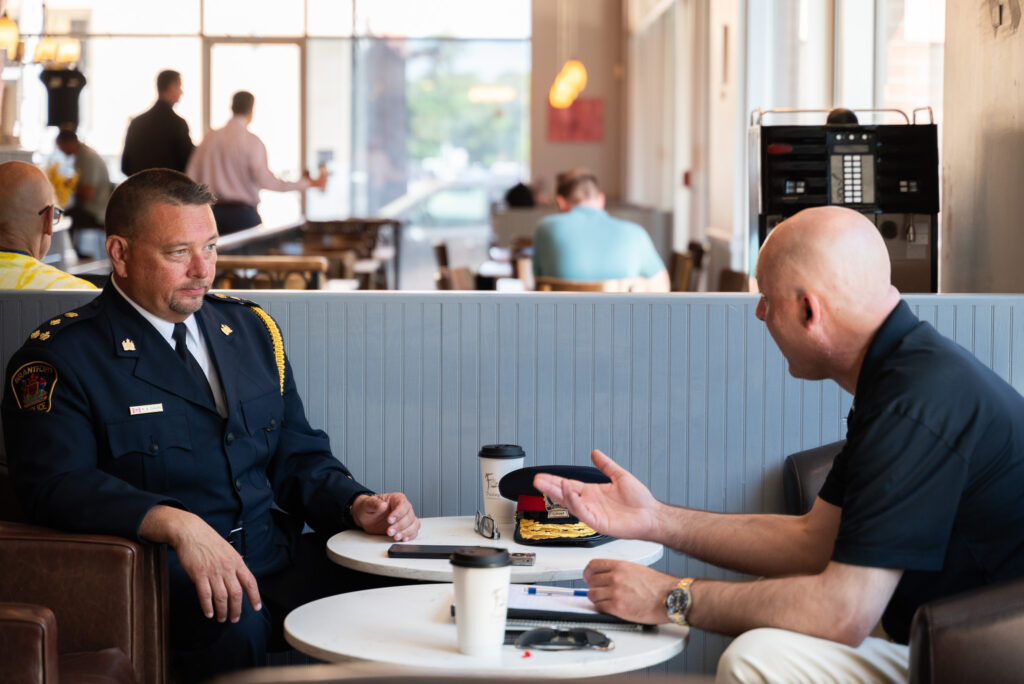
He explained that by taking a closer look at the City’s assets, it became a priority to implement groups such as the special constables and to restructure the by-law office to help better delegate certain safety issues.
“I had to look at all of the assets within the corporation of the City of Brantford that touch public safety. We had private security hired by the City, by-law which had six people focusing on property standards, we had the police that were supposed to be downtown and then we had fire prevention,” he said. “We had to really look at who all the players in that public safety space were, figure out where there was duplication, where there were gaps, and then where things were happening because I heard it a lot from citizens where they would say, ‘I call about this issue, and I get pushed off to the police,’ or ‘if I call the police about this issue, I get pushed off to bylaw,’ and the citizens were frustrated.”
By taking a closer look at what kind of calls they were getting and by partnering with Wilfrid Laurier University to do research, they were able to have a better understanding of the downtown perception of safety issues and determine if there was truly a violence problem.
“We partnered with Laurier on some research to look at, do we have a violence problem downtown, or is there more social disorder? It turned out that there are some instances of violence, but largely, the things we see are social disorder issues like somebody sleeping in an alcove, or a shopping cart in front of a store blocking the sidewalk. Those things don’t require a full-fledged police officer with ten years experience to deal with that, by-law can do that,” he said. “That first year and half, I consciously did not ask for new officers or special constables because the first mission was to support by-law in building their capacity. They’ve now gone from six by-law officers to 18 and the City also created a by-law director role and brought in David Wiedrick as well. So now, we have by-law taking care of a lot of that lower end stuff like security, by-law issues and parking enforcement, and that frees up our full-fledged police officers.”
He said that by having by-law take on specific issues, the outward facing special constables helped bridge the gap for simple Assault cases, Theft under $5,000, Possession of Stolen Property under $5,000 and Fraud under $5,000.
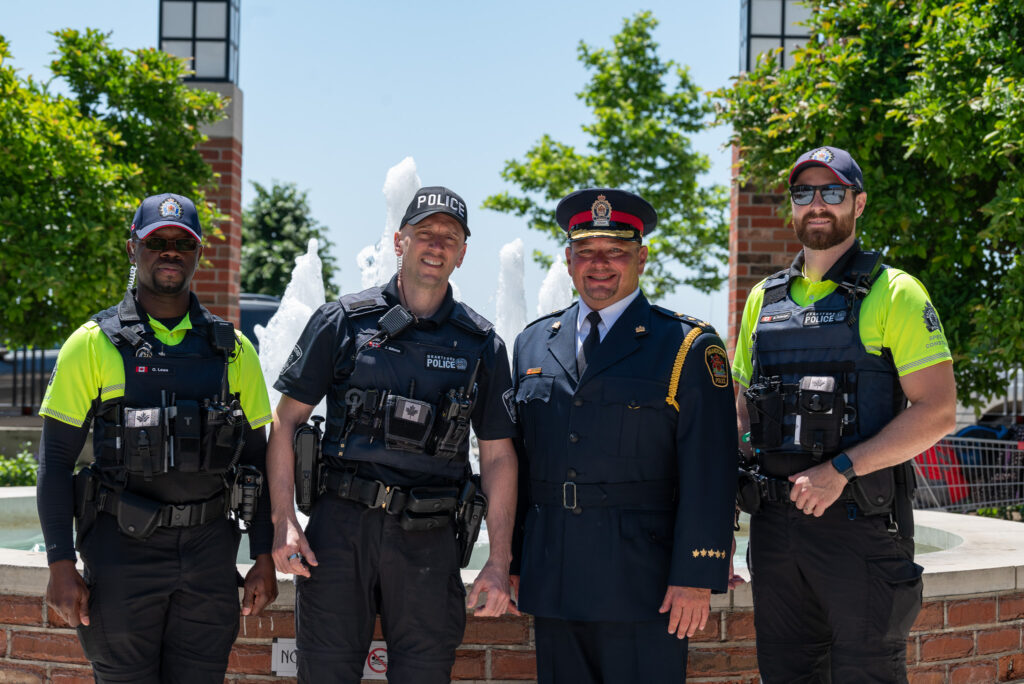
As far as the larger issue pertaining to drug busts and organized crime, Davis facilitated the creation of specialized units like the Tactical Intelligence Generated Enforcement Team (T.I.G.E.R.) and the High Engagement Action team (H.E.A.T.).
“Over half my career has been working in the Intelligence Unit so when I came back, and this is not to discredit anyone at all, it was clear that the strategies and tactics being used were antiquated and so I made it a very conscious decision to restructure. You hear chiefs throw the buzzword ‘intelligence-led policing’ and so we were saying we were ‘intelligence-led’ but it wasn’t reflective of true intelligence,” said Davis. “ I really did an aggressive restructuring to actually prioritize who were the greatest threats to the City of Brantford. So we got the intelligence unit up and running properly, prioritized our targets, got the frontline officers to engage people and talk to them to get that information to us and we revitalized Crime Stoppers, which was huge because they had fizzled out.”
He said that through the intelligence unit, BPS learned a lot about organized crime and how it’s structured.
“We learned very quickly that organized crime and criminal elements operate just like legitimate businesses, big city to small city, small city to outline small towns and Six Nations so the distribution is the same,” he said. “So T.I.G.E.R., was designed to operate at that mid-level to high- level crime which, to be quite honest, we were shocked about how successful things were and we never anticipated the success. We thought it would take many years to get somewhere but within months, our very first probe resulted in that $12 million drug bust at the Windsor border, which is one of the biggest ones in Ontario.”
After establishing T.I.G.E.R., Davis helped to facilitate H.E.A.T. next.
“The province funded that unit, and that’s to do more of the local, regional stuff in the City, surrounding partners and working in liaison with the gang units in the big cities. So, they really deal with guns and gangs, as well as street-level and medium level drugs.”
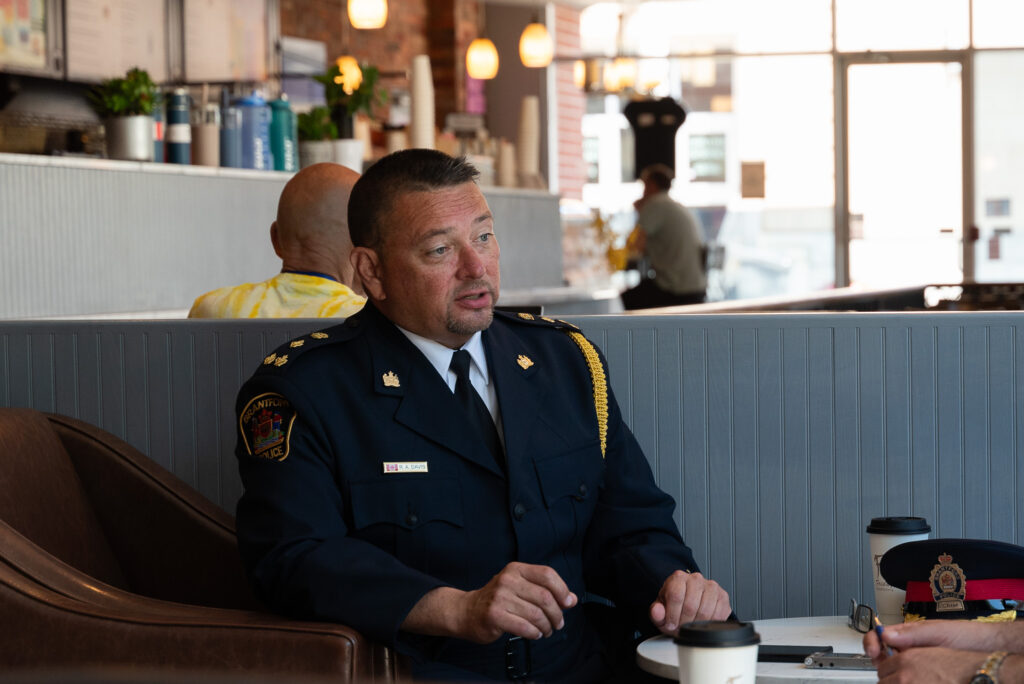
He said that between the two units, the special constables and restructuring of the by-law officers, all of it has allowed them to direct the appropriate resources and skill sets to the appropriate type of crime or public safety issue.
“This was always by design, to have those elements in place to take care of the most dangerous issues, get the specials downtown to free up officers and have by-law taking care of those smaller issues,” he said. “I said it from the beginning that it would take some time for these units to show their functionality but everything happened way quicker than I expected, and I can’t say enough good things about how it’s gone. When you see the appropriate resources being dispatched to the appropriate calls, it speaks volumes and the end result is that as of June 4, it marked 18 months since we’ve had a murder, which is huge.”
Davis said that part of delegating their work is also knowing when it’s time for officers to hand their information over and on to other partners like the Border Service Agency, OPP, Six Nations Police or even RCMP.
“I think differently about this than a lot of police officers because I was trained and mentored by those that believed that when you work on something you realize is bigger than you, the right thing to do is hand it off to that agency that has the capacity to do it,” he said. “I have had to really help shift the mindset that it’s okay to pass those cases onto someone else if they should be handling it.”
Chief Davis said that he hopes everything he’s worked to implement since 2019 will make a lasting difference for the City of Brantford and that both, the citizens and decision makers, will see that it’s worth investing in police services.
He said that when a company, whether it’s regional, national, or international, comes to a new city, they will look at four things:
- Is it safe for me to build a project here or is everything going to get stolen off the pallet before it’s ever built?
- Is it safe for the tradespeople to come and build here or are they going to be at risk getting shot or stabbed while they’re on the job?
- Are we going to find the workforce that’s going to want to move to this city or not because it’s been ranked number five in the top ten most dangerous cities in Canada every year?
- And finally, if the person who is going to work here comes, are they going to want to move their family and is it going to be safe enough that they’re not just going to commute?
“If those four conditions aren’t met, they will gladly go 40 km or 400 km down the way to where those conditions are,” he said. “I share that because I just really encourage citizens, Council and the boards of the future that, as the city grows, to think of policing as an investment. I also want to let people know that it’s them that will decide what policing is going to look like; We have new police act right now and there’s some gray areas on the use of special constables and that’s going to be the citizens that can really let our local board know what they want to see with the specials.”
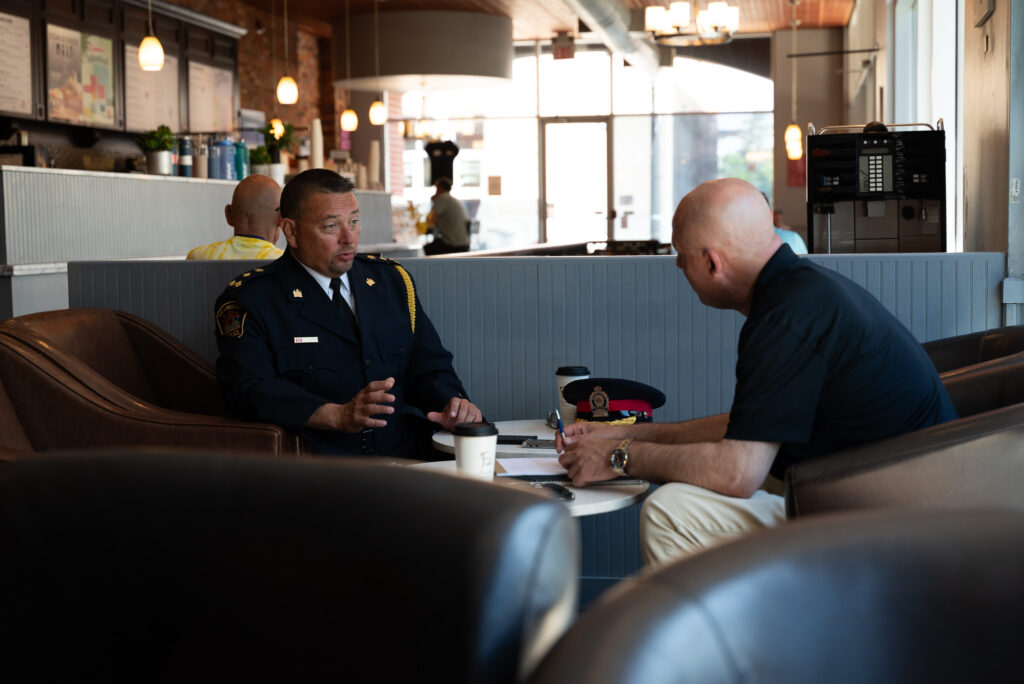
Besides the work he did to change policing in Brantford, Davis also focused his attention on programs that got residents involved, including the Citizens Police Academy, Youth Engagement Series (YES) program and a Youth Fusion Program.
“Citizens Police Academy was actually run by Andrea Cooper, a BPS Officer who passed away. I knew Andrea personally, and I actually served with her brother, so this was a tribute to Andrea,” said Davis. “As far as the Youth Engagement Series, it was created after the Wilfrid Laurier’s Community Safety Search Conference. Everyone involved in the program wanted this engagement, from the YMCA to the special constables, so that was an awesome synergy to develop the youth engagement series, which has been so successful.”
As the sun officially sets on his time in Brantford, Davis said he’s proud of the work he’s done and he’s thankful for every community member who was willing to try new ideas over the past five years.
“To the community; the citizens, stakeholders, and partners, thank you, because of that support, the results show what we’ve accomplished,” said Davis. “I just want to thank not just the officers but all of the men and women in both uniform and support roles like communication centres, records, maintenance… everybody. Without everybody putting their nose to the ground and doing the work, we wouldn’t have the success we have. Thank you all for your support, and I encourage you to keep doing the great work you’re doing to keep the city safe.”
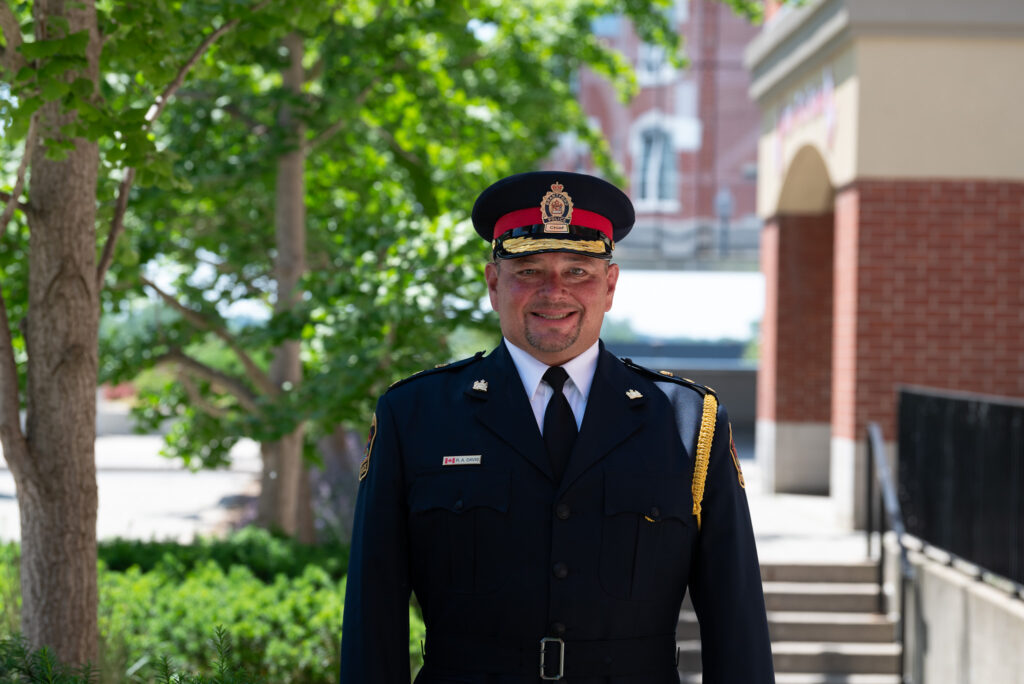
Kimberly De Jong’s reporting is funded by the Canadian government through its Local Journalism Initiative.The funding allows her to report rural and agricultural stories from Blandford-Blenheim and Brant County. Reach her at kimberly.dejong@brantbeacon.ca.
